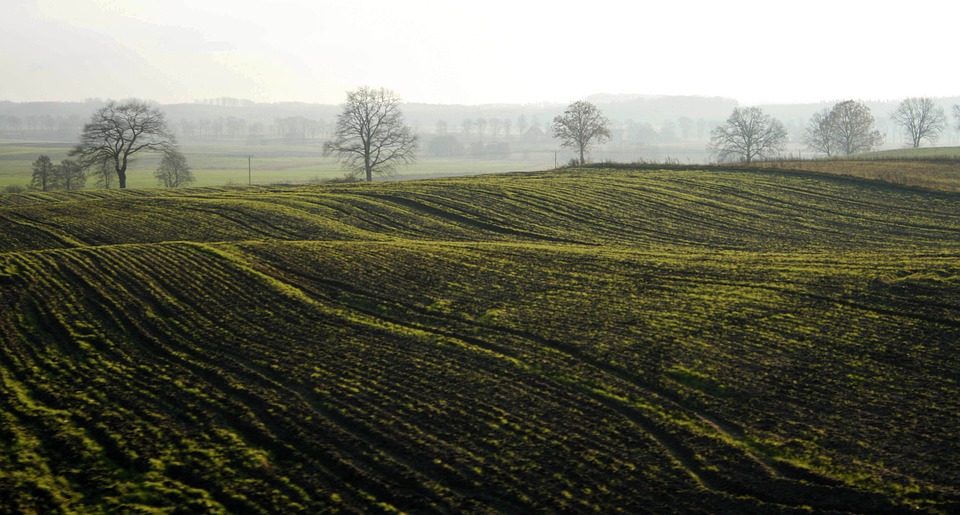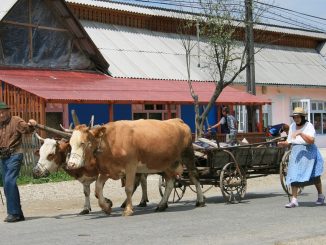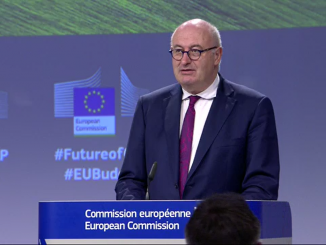As a major agricultural nation in the east, Poland has a significant interest in how CAP will unfold in the current reform process. While not all regions or sectors are the same in this large country, there are some common considerations. We have commissioned journalist Hans Wetzels to get to grips with CAP and Poland, in particular how Polish farmers and Polish policy makers will adapt to likely changes, including a lower overall CAP budget, greater environmental focus and the new delivery model. How Poland relates to other EU countries, in particular France and Germany, will also play a part in this series. Below we introduce part three.
Poland has a turbulent history. The country was ripped apart by the great European empires of the past, suffered under the yoke of dictatorial communism and is now slowly finding its place within the new Europe. Poland ranks fourth in the European Union when it comes to arable land. But even here the past partition of the country between Germany, Russia and Austria-Hungary is still recognizable. Most Polish family farms are located in the south – according to Habsburg inheritance tradition farmers divided their plots equally over all children. The north-western part of Poland is characterized by big and highly productive farms – under German tradition the eldest son received the whole farm.
Counsellor General Zofia Krzyzanowska takes a pen and invisibly draws out the dividing lines on a big map hanging on her office wall inside the ministry of Agriculture. Outside snowflakes come swirling down from a leaden sky. According to data from the European Commission Polish farmers are the fifth-largest beneficiaries of EU-subsidies. Big farms especially benefit greatly from the European money flowing into the country. Even the ruling – and heavily nationalist – Law & Order (PiS) party cannot deny that.
But cashflow doesn’t mean all is well in the Polish countryside. “Because of the interest of foreigners in our cheap land it gets harder to keep Polish farms Polish,” Krzyzanowska explains. “Then you have the problem of succession, drought and higher temperatures. Pigs have always been an important part of Polish agriculture, our pork sausages and hams are famous. But that has been going down since the sector was struck by African swine fever. Furthermore, the position of sugarbeet growers has been getting worse since the EU abolished the sugar quota system so Polish agriculture does have some challenges to face.”
Agricultural Chambers
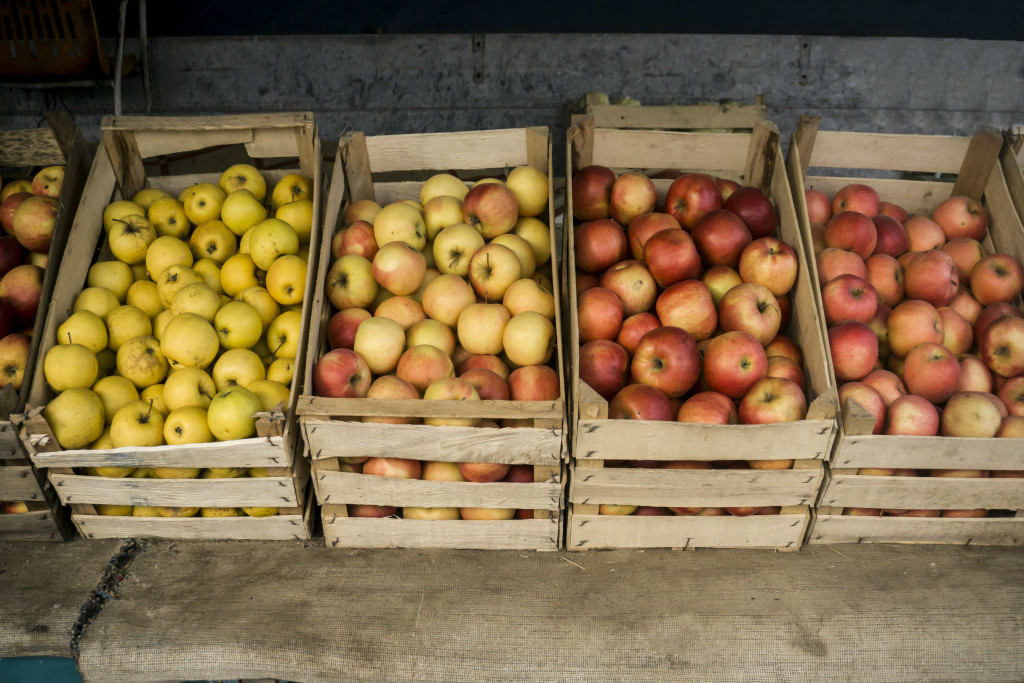
Poland still ranks first in Europe concerning the production of apples, poultry, berries and mushrooms, while milk production is rapidly growing. Despite rural problems, Polish agriculture is a net benefactor of EU-subsidies, Henryk Dankowiakowski immediately stresses. Dankowiakowski is the director of the Agricultural Chamber in Malopolska region – in the very south of Poland. Since the nineteenth century, Polish farmers’ interests are represented by a regional network of independent, self-governing Agricultural Chambers. Members are all those who pay agricultural tax. “The average farm in this region is less than four hectares big. The national average is about ten,” Dankowiakowski explains. “The form of agriculture varies with natural conditions, geographical location, soil class and traditions. In mountain areas animal farming dominates, while in the lowlands cereals, corn or sugar beets are grown.”
However, small farms are slowly disappearing in his voivodeship, Dankowiakowski says: “Even the largest farms above fifty hectares completely rely on new technologies to be able to compete in food markets.” According to the Agricultural Chamber, European CAP-money is crucial for farmers in Malopolska. The anti-European stance the PiS-party takes in Brussels naturally fall doesn’t fall too well with Dankowiakowski, he argues: “Over the years, Poland has become one of the largest beneficiaries of EU-support. Subsidies are a very important part of the finances of every farm. We do, however, regret that the subsidy is still based on acreage instead. The number of small and organic farms is declining due to this and the European quality control demands that they must fulfill.”
Flourmill
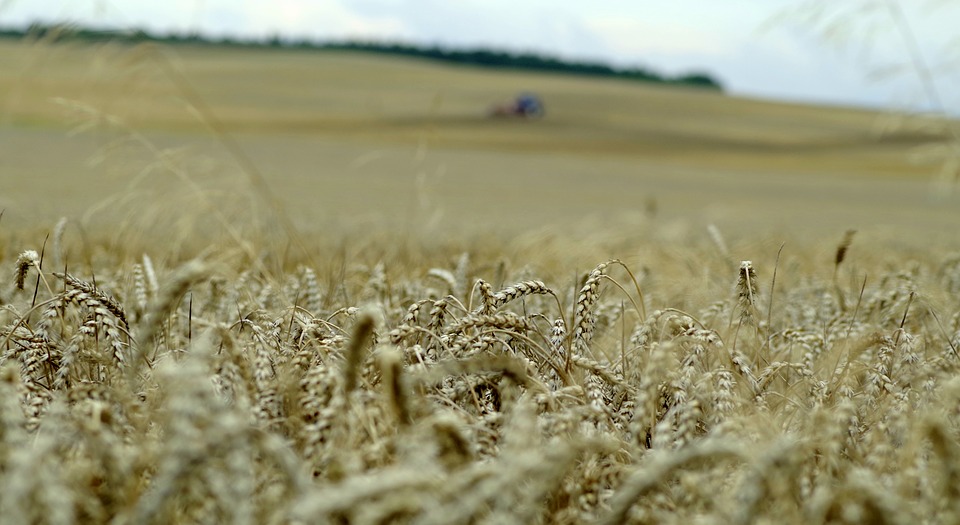 Janusz Sliczny and his wife Iwona run a small farm in the village of Kamienisko in Upper Silesia. Sliczny takes of his boots after coming back from the fields while his wife serves fresh herbal tea with handpicked ingredients. She takes out a big book with photos and notes. Since 2001 the couple gives training for farmers that want to turn organic: “As an organic farm we have birds and insects around and healthy soils with a lot of animals living in it. Soils are vitally important to all of us. My favourite days are when I can just focus on the ground under my feet and count the worms.”
Janusz Sliczny and his wife Iwona run a small farm in the village of Kamienisko in Upper Silesia. Sliczny takes of his boots after coming back from the fields while his wife serves fresh herbal tea with handpicked ingredients. She takes out a big book with photos and notes. Since 2001 the couple gives training for farmers that want to turn organic: “As an organic farm we have birds and insects around and healthy soils with a lot of animals living in it. Soils are vitally important to all of us. My favourite days are when I can just focus on the ground under my feet and count the worms.”
The Sliczny farm dates back to 1933. He sports a big grey moustache and has bright, sparkling eyes. Nowadays the couple grows potatoes, beetroot, carrots and different kinds of grains on their ten hectares of land. Each year they receive about 200 euro’s in CAP-subsidies per hectare. Still the Slicznys need jobs on the side to make ends meet. During the summer they receive tourists and give on-farm classes to students. “The European subsidies are meant to guarantee cheap food for consumers,” Sliczny says. “For farmers market prices are much too low so we’re dependent on the subsidy. To make enough money you have to upscale your production and sell more, make sure you earn more per kilo by processing your crops into consumer products yourself or take another job. The conventional farmers I know farm around fifty hectares. They all borrow money to buy modern combines or tractors. If commodity prices are low or harvests turn out bad they’re still indebted and the bank comes knocking on their doors.”
But Sliczny fears that before long there will be no option left but to upscale if he would want to continue farming fulltime. We walk around the snow-covered fields around the small house. Sliczny opens the door to a barn. He used to run a mill here, he shows. Green milling equipment and big bags of flour stand around. After years of producing flour and flakes from their own grains, the couple recently had to close shop. The costs for getting he necessary certification were just too high for them to bear, Sliczny explains: “There are a lot of European rules for processing food and Polish law changes quite often. As a small farm we have to abide to the same regulations as the big mills do and certification costs a couple of hundred euro’s. Now that we’ve stopped making flakes ourselves we have to find another way to get rid of our grains without losing money.”
Stronger economic performance
For the Organisation for Economic Co-operation and Development (OECD), reducing the number of small farms is exactly the point. Land consolidation active economic diversification policies would lead to a stronger economic performance of the Polish countryside, the organization writes in its yearly rural policy review. Since EU-accession Polish agrarian export has been steadily growing. In 2017 Poland exported for more than 27 billion euro’s of agrarian produce. Especially productive sectors like meats, grains, tobacco and dairy are doing quite well, the Polish statistical agency GUS reports.
According to the OECD, successive Polish governments have indeed put too much political emphasis on small farms rather than commercial agriculture: ‘A 2015 review of CAP (Pillar 1 implementation) [by the European Commission] found that Poland is one of the countries that has tailored the common agricultural policy most in order to meet national priorities. Going forward, Poland should provide a more balanced policy framework. Reducing (for example) the Poland’s Farmer Social Insurance would help accelerate the adjustment of many households out of unproductive farms.’
To keep Polish exports on par the European market is crucial, Zofia Krzyzanowska tells me in her office in Warsaw: “For Polish farmers, the common market is a big benefit. Competing with cheaper products from other continents, however, is not. Especially since minimum prizes have long been replaced by subsidies as a form of compensation. Farmers prefer to get a good price for their produce, but they need direct payments from the EU as security.”
But it is also precisely that market dynamic forcing farmers to constantly upscale and intensify their production, Krzyzanowska says: “We support the direction the European Commission is taking the new Common Agricultural Policy (CAP) for the next budget period. Taking care of the environment and keeping animals in better conditions are important issues. But the discussion about high volatility of prices stay open and market interventions are still not discussed.”
Industrial farming
The unrest among small farmers has been gratefully used by the ruling party Law & Order to spice up the anti-EU rhetoric. Nevertheless we shouldn’t forget that domestic Polish politicians also have big stakes in agribusiness, Dorota Metera points out. She works for organic certification body Bioekspert and is a member of a new NGO-grouping called Living Earth Coalition. “I hope the European Union will put some effort into containing the power of Polish industrial agriculture,” she says. “There are big players involved in the poultry market, in grains and the apple market is also quite concentrated.”
Sitting in a train rolling southbound out of Warsaw is a spectacle to behold during wintertime. Snow covered birches, bright white fields and a deep blue sky make the countryside look like old Russian novel by Dostoevsky. Fields of apple trees pass by. Total apple production amounted up to 5 million tons in 2018 – making Poland the biggest apple producer in Europe. But the Russian embargo is still hitting Polish fruit growers hard. The resulting overproduction has given big processing companies the opportunity to dictate the price of apples, forcing farmers to let their produce rot in the fields. Metera: “The production of apples was so high this year that big processing companies could press down prices. Many farmers decided never to harvest their apples because of that.”
During the summer of 2018 the Union of Polish Fruitgrowers also pleads with its members not to harvest soft fruits and calls upon the ministry to take me action against all-powerful processing companies depressing prices on fruit markets. “The previous Polish government was very liberal and supported big farms and food processers,” Metera explains. “The lobby of big poultry producers or fruit processors is still quite big. But the current government at least makes a point of fighting rural unemployment, even if I don’t agree with the nationalist parts of their policy. I personally am very happy that the new CAP has higher environmental and food quality standards. But a too liberal trade system is against the interests of consumers, farmers and the environment.”

More on Poland

